#kung fu panda criticism
Text
I kinda hate Dreamworks-stans (
No, not Dreamworks films persay, especially the ones I haven’t seen that everyone is so hyped that I do see (The Last Wish, Rise of the Guardians, Kung Fu Panda 2-3). It’s just...
The attitude -some- Dreamworks fans have about these franchises is a real turn off for me. They mostly say only good things about these movies but...they're kinda...snooty? I don’t want another Paranorman situation, is all. Before I go any further I will say, I definitely think Dreamworks films objectively look better than Disney’s modern movies-.Dreamworks’ artists are more at home with cgi where Disney’s fantasy films don’t look or feel right in that medium, compared to How to Train Your Dragon, that is. And yet...
I’ve really never liked Kung Fu Panda as a series. I disliked the first and didn’t feel anything for it all, so I've never watched the second even though everyone assures me it's better. Yeah. I'm sure it is. Part of this is all because of inner-fandom petty nonsense; baby-faced KFP stans were saying Skunk Fu! is a ripoff of KFP. Objectively YES, KFP is a better moviestory but what if I just straight up don't like it or feel obligated to like it ((this debate was always stupid regardless of what franchise was 'better' or 'worse' than the other. The idea of furries doing martial arts is a popular trope in animation cuz different styles or martial arts are even NAMED after animals sometimes.)). Either way, despite it looking cool and having a peacock as the main villain I have no desire to give KFP any attention kind of BECAUSE you all are so obsessed with it being "JUST SO GOOD".
But the thing that really irks me about Dreamworks fans is how obsessed they are with design and aesthitics >> character development and appeal.
While I liked How to Train Your Dragon a lot, I really didn’t like the second movie. That film had WAY too much going on in it. It was overstuffed and gave me a headache. It had no room to develop itself properly and sns I hate the character of Valka. I hate how she’s written to be this actually a loving mother to Hiccup and really loved Stoic deep down. To me, that cheapens her character and her son’s uniqueness for bonding with Toothless if it’s really just that his mom is just like him. I read somewhere that she was actually supposed to be a distant, kind of “wild” character who was more interested in dragons and didn’t feel that natural maternal instinct because not all women are motherly and that’s fine, and now with Stoic changed (and then dead) and Hiccup needing her she’s got to face her past and connect her dragonrider side with her family. No idea if any of that's true but WOW. I would have like that way more. But instead- I found Valka really bland and kind of awfully written, just like the rest of her movie. Oh, but everyone just "LOVED" that movie because Stoic died or whatever. I didn’t feel anything for Stoic’s death despite me liking him in the first film. I thought the second movie was a good story in theory, BUT the execution was so bad I'm sorry. It all went by so fast and so clunk that I didn't actually feel anything for this shocking and dramatic character from the first film at the hand of his son's hypnotized dragon. Believe me, I GET where people are coming from about this scene. Again I get what the emotions were supposed to be. I’m saying I found the storytelling and pacing horrid and it, by virtue, ruined the character(s). Just to add salt in my wound, everyone and their mom seems to love Valka cuz she doesn’t have same-face syndrome like the modern Disney women all have. Again, objectively Dreamworks has a better eye for style. BUT YA KNOW WHAT? I really think some of you are way too locked into this “looks generic/basic pretty woman = bad character” philosophy which kinda makes me want to scream.
Sns Moana, Maribel and Elsa > characters than Valka and that girl from the Croods.
You don’t have to love or even like them or those movies, but I mean objectively I think they’re better written story-wise. To better explain it’s the same logic that badfaith reviewers apply to Illumination: people hate the characters for their made-to-be-appealing designs and grafted personalities as opposed to their actual shortcomings as characters in the writing. Same face syndrome, manic pixie dream protagonists and EVERY Disney movie being about a man and a woman going on a wacky three-day long adventure is annoying, but if the blowback from Wish is any kind of indication, people are not going to love it “no matter what” and Disney-adults aren't sheeple.
I’ll believe fans when they tell me How to Train your Dragon 3 is awful. Yeah, I don't doubt that. Bu,t can you all kindly eff off with the implication that everything wrong with that movie stems from how Toothless’s mate is a pretty girl whitedragon version of him? Can you all shut up about how the 'Light Fury' (stupid name) ruined your life?
I too hate the trope of “girl = lighter and pretty”, but of what I’ve read that’s not the problem with her, character wise. Frankly, given how some of you act, I’m not convinced you would have any of these hang ups about her had she been better designed and not just white-Toothless. From the way some of you sound, it kinda feels like if her design was actually good, you would be stanning her character even after her movie/character turned out to be bad. It's why I also don't trust ya'll when it comes to that Elsa-looking fox girl in the new KFP 4 movie and how 'bad' she looks. Yeah, she DOES look bad...but I don't know by what margin you're talking about.
In the end, where Disney adults are their own kind of hivemind of shallow - believe me, I know - I kinda hate the unself-awareness of Dreamworks fans. They remind me of that side character in Mean Girls who gets the main character to spy on the Plastics because she hates them. They’re their own kind of shallow and mean. I wish they would at least be aware of that.
Also, Jeffry Katzenberg is NOT your friend. He's an AI-advocate and it's his fault Disney made Pocahontas.
#franki's features#dreamworks critical#dreamworks#httyd criticism#kung fu panda criticism#self-reblogs coming
10 notes
·
View notes
Text
Someone needs to do an analysis on the way the Kung Fu Panda movies use old-fashioned vs. modern language ("Panda we meet at last"/"Hey how's it going") and old-fashioned vs. modern settings (forbidden-city-esque palaces/modern-ish Chinese restaurant) to indicate class differences in their characters, and how those class differences create underlying tensions and misunderstandings.
#This is neither a criticism nor a compliment of that artistic choice#I just think it's really interesting#Like even looking at the Five:#Tigress talks in an older style than the others because she was mainly raised at the Jade Palace#While Mantis talks like Joe-schmo off the street because he *was* a streetfighter and an ordinary guy#Shifu and even Tai Lung talk like they're from an old-fashioned novel or kung fu movie#Po talks like a modern guy you'd meet working in a twenty-first century family restaurant#Part of Tigress's initial disdain for him in the first movie is clearly because she considers him to be low-class/a commoner#(And therefore an intruder into the world of the Jade Palace and the rest of the Kung Fu masters which appears to be semi-noble).#Shen looks genuinely off-put and disgusted when he has to respond to Po's greeting with a “...hey.”#And when Po wants to appear more legitimate as a warrior he adopts a more “legendary”/old-fashioned way of speaking.#In the aesthetic language of KFP old fashioned=noble/upper class and modern=common/lower class.#This translates entirely naturally—I think especially to an American audience—but it is wild once you notice it#Because you realize: “Hang on—shouldn't *all* these characters be talking like they're living in the medieval era?”#“And what does it mean that they're not? What is the movie attempting to convey with this—probably entirely subconscious—artistic choice?”#kung fu panda
871 notes
·
View notes
Text
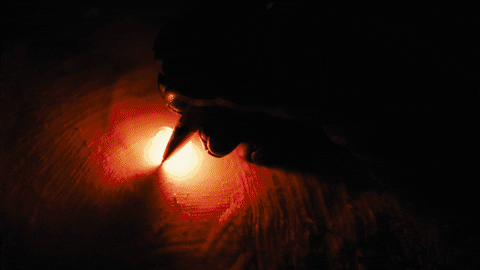
dreamworks making some of the best animated sequels to their animated movies ever
#shrek 2#shrek#dreamworks#puss in boots#puss in boots the last wish#kung fu panda#kung fu panda 2#YEP#critical . txt#how to train your dragon
5K notes
·
View notes
Text
—BECAUSE KUNG FU PANDA 4 KILLED MY GRANDMA, OKAY?
To preface,
I watched this movie and I'm genuinely tweaking right now so I had to write down a very brief (lie) criticism on this film — which you should boycott, by the way.
Starting with the things I liked, before briefing my primary points of criticism:
Po's Character Regression
Po and Zhen's Dynamic
The Chameleon
I'd also yap about Lord Shen and the death of the art style and the entire narrative and pacing and use of the staff of wisdom but my therapist says being such a hater is 'unhealthy' or something.
My heart is full of hatred.
SPOILERS for the entirety KFP4 for the 2 people who care.
KFP4 undermines and ignores the previous three movies — Unwriting character developments, outright removing the Furious Five, straying from the character design philosophies and is completely inconsistent with the established lore.

Things I Liked About Kung Fu Panda 4
The Chameleon's character design
Visual gag in the Tavern where Po uses a recently thrown axe as a hat rack (made me laugh)
When Mr. Ping did this:

so cute! the little heart!

Po — Character Writing

Po, as established in the previous movies, is confident in his abilities and identity — he’s learnt inner peace, he’s matured as a character.
However, in KFP4, his character has completely regressed.
He’s immature again (such as KFP1, possibly worse) and says verbatim, “only knows kicking butt and taking names” — UNLEARNING inner peace and insisting that “…being the Dragon Warrior is all I know.”
It’s childish, and sort of Hotel Transylvania-esque.
Which isn’t helped by the comedy, the dialogue — a large chunk of which are jokes in the style of:
Master Shifu says something philosophical
Po quips off of it / doesn’t get it (i.e. Whoa!! beat I don’t know what that means.)
Oh, it’s great, yeah, very tolerable. Po’s shenanigans are normally reeled in by the presence of the Furious Five who are generally more serious in nature, creating a much needed balance in the dynamic — So without them, it’s just Po becoming increasingly obnoxious and insufferable with every consecutive quip throughout the screenplay.

Po and Zhen — Character Dynamics
[No more graphics sorry I'm too angry]
As if it wasn’t obvious that Zhen was going to be the next Dragon Warrior the second she was introduced.
Zhen, as a character, has no depth besides being a quippy thief. She quips, she steals.
This character has no motives — it can be assumed that the writers intended on a ‘change of heart’ thing, but she isn’t established as evil, her working for the Chameleon is written as a (albeit poor) twist reveal.
By which point, her taking either side wouldn’t make sense, given that she has shown no loyalty or attachment to either Po nor the Chameleon.
The movie artificially strengthens their bond by having Zhen start opening up about her backstory out of nowhere for no reason but they have done nothing to grow closer to each other.
Small tangent, her backstory is exactly what you’d expect it to be with no subversions or even emotional weight. Woe is me I was so small and hungry I had to steal to survive. Glossed over in about a minute.
The majority of the dialogue between Zhen and Po is spoken exposition — explaining how powerful and badass the Chameleon is, explaining how ‘we have to go here to do that’ and ‘this place was cool until the Chameleon did such and such’, and the rest of their time together is spent engaging in filler chase sequences and fight scenes.

The Chameleon
Where do I even start…
This is where it becomes apparent that the movie relies heavily on telling rather than showing —
She is the weakest villain by far, not only in universe but as a written character; which is particularly disheartening because I genuinely adore her character design and feel as though a shapeshifting character has great potential.
The movie artificially inflates her power by insisting through exposition that this is the most capable antagonist thus far (lie).
The audience is TOLD by Zhen and various restaurant patrons that the Chameleon is a powerful shapeshifting sorceress and that she 'dominates the city' whilst the film does nothing to showcase this.
'Dominating the city' meaning letting her henchpeople run amock and bully the civilians just like Lord Shen's wolves in KFP2... uninspired.
I just realised they didn't even give her a NAME what the FUCK is going on
She describes HERSELF as ruthless, clever and unsentimental when comparing Zhen to herself.
She says HERSELF that she’s “Stronger than every opponent you’ve ever faced.”
Let’s see what vile reprehensible things she’s done, shall we?
Gently push someone down some stairs
Her first appearance is through Zhen’s exposition, as opposed to the dramatic and memorable entrances of the previous villains. Her motives or character aren’t established until the final third of the film. She doesn’t even FIGHT anybody until the final third of the film; and even then, her fight sequences are uninspired and she never really poses a real threat. (She goes down in two hits.)
That being said, WE CAN STILL SAVE HER GUYS WE CAN STILL GET HER OUTTA THERE I'M COMING FOR YOU CHAMELEON I'M GONNA DRAFT YOU A PROPER BACKSTORY AND MOTIVE AND YOU'RE GONNA BE THE MOST THREATENING VILLAIN THUS FAR

There's a scene after the climax of the film where all the kung fu masters and previous villains from the spirit realm bow to Po. I'm not going to provide my thoughts on this because I fear I may burst a blood vessel. Good day!

Closing Statements
To put it simply, Kung Fu Panda 4 was my Megamind 2.
The film rejects its predecessors in every way. It really feels as though they brought in somebody with no prior knowledge of the franchise to direct the movie.
It's a film that relies heavily on telling rather than showing — banking on the previous three movies to carry it through the box office.
It's just really disheartening to see studio execs turn one of the best franchises into a safe sequel cash grab and regress every character's development.
Nevertheless. I do adore the chameleon's character design so I might do my own take on her character.
As far as I'm concerned, there is no fairy godmother, there is no tooth fairy, and there is no kung fu panda 4.
#creaman talks to drywall#kung fu panda 4#spoilers#I'm actually tweaking#sorry I stopped drawing the graphics because the film crushed my soul#you drive me to drink kung fu panda 4#when the rantsona crosses their arms#hating on main#kfp#discussion#criticism#kfp4#technically a vent post#i've lost it#the chameleon#zhen#po
211 notes
·
View notes
Text
Criticism of Blue Eyed Samurai
Well, I just watched Blue Eyed Samurai. Been spotting several positive clickbait thumbnails of it, so even though I didn't have high expectations based on the trailer, I gave it a go. And well, it was what I feared it was. I still enjoyed it though! And it's an engaging story, just not what I wish it was. Anyways, I wrote a comment on Reddit about it, which I thought I'd repost here.
Edit: I ended up going in and reordering some paragraphs under headings, as people on Reddit replied to by comment. Noticing people are nitpicking the historical accuracy of my commentary, which wasn't really what I was concerned about. It's more that certain cues in these stories make me expect certain things.
The main point of much of this text is to look into what makes Blue Eyed Samurai a noticeably American story, by comparing it to other jidaigeki stories with a similar setting made for and by Asian people, and stories set in Asia made by Americans (for Americans).
🚧 NB! I'm still working on the text. Text marked in cursive are just notes, so please ignore them for now! 🚧
Overall verdict
I did also think of Ghost of Tsushima while watching, but in the sense that Blue Eyed Samurai lacks what I liked about it. Ghost of Tsushima did a great job with its Japanese localization, and referenced actual bushido conduct, although a little bit off still. Blue Eyed Samurai throws around words like samurai and honor, but doesn't appear to actually understand what these words entails, and only focuses on the superficial badassery of it (...)
But overall, great choreography and compositing, engaging story and characters ... Blue Eyed Samurai is good, but does veer into the uncanny valley for me, which I know was an issue Asians had with ATLA. Guess I felt it a little bit more with Blue Eyed Samurai due how much (unrealistic) violence and (meaningless) sex is glorified, and made me question what exactly the overall moral message of the story was supposed to be beyond simply "revenge plots are cool but also destructive." As somebody else said, it's giving "guts and tits for the people."
Glorification of the badassery of revenge
So, somebody replied that they thought we should be careful about romanticizing bushido, and provided examples of samurai being deceitful. This is my reply.
You missed my point. I did not want Blue Eyed Samurai to romanticize bushido, I wanted it to discuss and explore it, exactly because it throws around words like honor and samurai. A first step towards this is to acknowledge that Mizu is not a samurai.
What is Mizu?
We could argue that she is a ronin, but then she'd technically must've been serving a lord as a samurai in the past, and should be at least be a tiny bit concerned with chivalry (at least enough to discuss or talk about it), which we know isn't the case. Mizu is closer to being a shinobi/ninja, since her goal is to assassinate her 4 maybe fathers. Another thing Mizu shares with shinobi is that both are often criticised by samurai because of their penchant for ambushes and lack of concern for bushido / warriors code. Yet she breaks the mold of being a shinobi, since she doesn't really sneak around in (civilian) disguise and will openly brawl her way through a dojo and into a fort.
Mizu has a lot in common with the titular protagonis of the manga Azumi. Both are female assassins with foreign blood (bluish eyes) fighting during the Sakoku policy. While Mizu's motivation is simply revenge for the injustice she and her mother suffered at the hands of the gaijin faction, in Azumi the motivation is to prune the country like a bonsai tree off individuals which may threathen a new age of peace, and prevent the country from slipping back into the Sengoku period of civil war.
But where characters in Blue Eyed Samurai is heavily protected by plot armor, allowing Mizu to be an almost invincible pin cushion, no one is safe in Azumi and injured characters requires months to recover and heal from cuts.

While writing this, I recalled that in episode 5, they interjected a story about a samurai marrying and fathering a child with a woman who descended from an enemy clan. He kills both her and their son, which turns her into a onryō. Mizu being an Onryō works, but I am left questioning how this fits into the story beyond its symbolism, as there's been no explicit supernatural elements in the story. Mizu is bullied for being the (devil) spawn of a quote "white devil" in childhood, I think it would be more interesting if they called her a "white ghost," since onryos (which could represent Mizu) are a type of vengeful female ghost. Furthermore, Taigen often compares Mizu to a dog, esp. when she does not live up to the samurai standards he holds her to. Not sure where that fits in either..
Orientalism
So the statement about samurai criticising shinobi was called out as orientalist. This was my reply:
As for orientalism, I guess Blue Eye Samurai is being orientalist then, which I was kinda feeling while watching but didn't really put into words. It's pretty stereotypical to connect Japanese with honor and samurai after all, contributing to why I felt the show was very American.
In the sense of samurai simply meaning warrior, then we can consider Mizu a samurai. But Taigen (and Akemi) connects being a samurai with honor and complains about fair play. By making this connection, he invokes bushido/chivalry and excludes people who ambush others like assassins from the definition of being a samurai, and by extension criticises assassins like ninjas for not shying away from "dishonorable" ambushes. To restore his honor, Taigen wants to arrange a formal duel and even writes up a challenge letter (hatashijou), which makes sense in terms of the dojo trope. But well, the series does contradict itself a lot in favor of cool one liners, and what it means to be a samurai or knight has changed throughout history.
"Glory" in Azumi
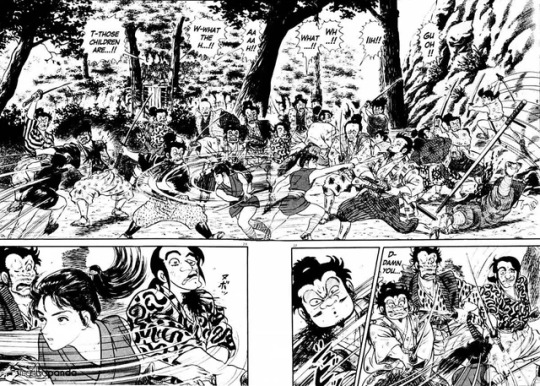
As I said, the manga Azumi is what I was hoping Blue Eyed Samurai would be. Azumi is a gritty look into (among other things) both shinobi and samurai that does not romanticize either, and has won an award for its exploration of these concepts in relation to buddhism. In fact, everyone in Azumi suffers. The only one who is perhaps glorified is Azumi, who many critics compare to a boddhisattva.
Throughout the story, Azumi works to not become too attached to earthly comforts, but still suffers because of her attachment to her companions. As Azumi completes her pruning missions for her boss (the Buddhist monk Tenkai), she accumulates a lot of bad karma in the form of endless waves of people pursuing her for either revenge, the bounty on her head, the thrill of defeating a master swordswoman, etc. Because of it, 90% of her closest companions SPOILER die, and many of her friends are raped or permanently maimed, and has to deal with the trauma and practical inconveniences of it. Often because they are caught in the crossfire between Azumi's targets or those who pursue her.
By the end of the story, Azumi still ends up making new companions like usual and her boss continues wanting to send her on pruning missions. But she decides to leave them all behind, so that those she cares about will not be affected by her bad karma again. She knows she will have to stay on the road indefinitely and will never really be able to enjoy the comforts of settling down, because of her pursuers. The series makes the buddhist argument that earthly attachment in general causes suffering, and Azumi is enlightened by abandoning those attachments and by facing her karma, although that does not mean she will not end up with a violent death. The story ends openly with Azumi wandering off into obscurity.
Time period
Some people began nitpicking the historical accuracy of my commentary, which wasn't really what I was concerned about. I am open to artistic liberty. However, with BES it was a little bit harder, since they made so many historical references and leaned into the jidaigeki genre, but then broke it in ways that came off as uncanny to me. Looking back, I guess this uncanny feeling was the orientalism letting itself be known, though I couldn't put it into words back then.
As jidaigeki is a subgenre of historical stories, certain cues does make me expect certain things. Like when I see an English-speaking gaijin as the antagonist, I would make the connection that this story is probably set sometime after the Americans forced Japan to open up for trade in the 1800s. Yet this expectation is then contradicted when I learn that no foreigners are allowed in Japan yet due to the Sakoku policy, which makes me wonder what this Irishman is doing here all alone centuries too early and how he even managed to climb to such a powerful position while being so isolated.
Gaijins as antagonists
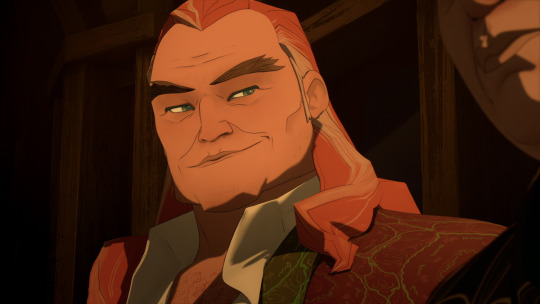
Why an Irishman as the gaijin antagonist? It'd make more sense if it was a portuguese or dutch. If Blue Eyed Samurai is set in 17th century Edo Japan, it's a long time off when the Americans forced Japan to put down the sakoku policy, and even then, why Britain/London? If anything, Japan and Britain liked each other enough to form an alliance for their shared fear of Russia.
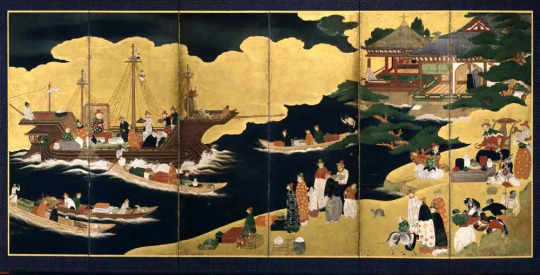

Why not other colonial powers who were actually active in Japan and Asia overall at the time (the Dutch) or the ones who caused Christianity to be banned during the sakoku (the Portuguese).
My first thought of a precedent goes to Konishi Shizune, the Christian revolutionary leader in Azumi who's also mixed race like Azumi, which is based on the historical Amakusa Shiro.
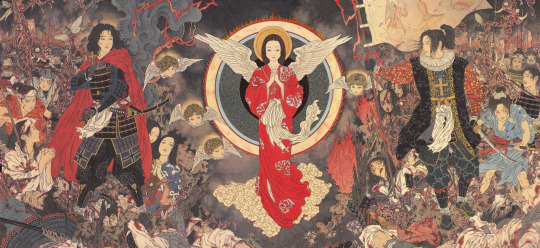
(Depictions of Gaijins: Americans during postwar Japan in Hajime no Ippo. Senator Armstrong in Metal Gear Solid)
Japanese in Europe
With Mizu heading to Europe, I came across people discussing the plot armor and how Mizu wouldn't stand a chance against the guns nor London police. It came off as kind of white supremacist, and the entire thread was locked because of unsolicited opinions from outsiders.
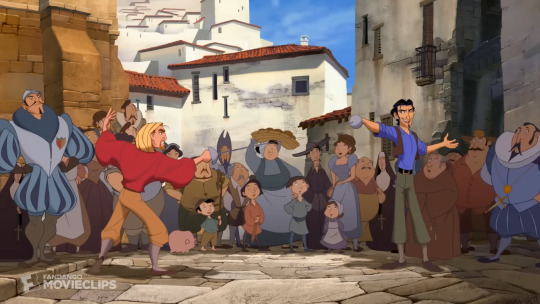
To be fair, Japan had guns too at the time. According to Netflix themselves, Blue Eye Samurai takes place in the 1600s. If that's the case, it means that the guns were mostly muskets, rifles and pistols which took time to load, so people did still use swords even in Europe. And only a century earlier in the 1500s, when Dreamwork's El Dorado is set, people would still use firearms and crossbows side by side, and Oda Nobunaga also used firearms in his own warfare during the sengoku period.
Also, the police didn't exist yet, since the UK police were created in the late 1700s. As for the London battalion or royal guards storming her, it'd either amount to when she was stormed by the hand claw guys. The plot armor in the first season was a lot imo even then though. But sneaking up on them depends on the terrain and context, so I can see it happening.
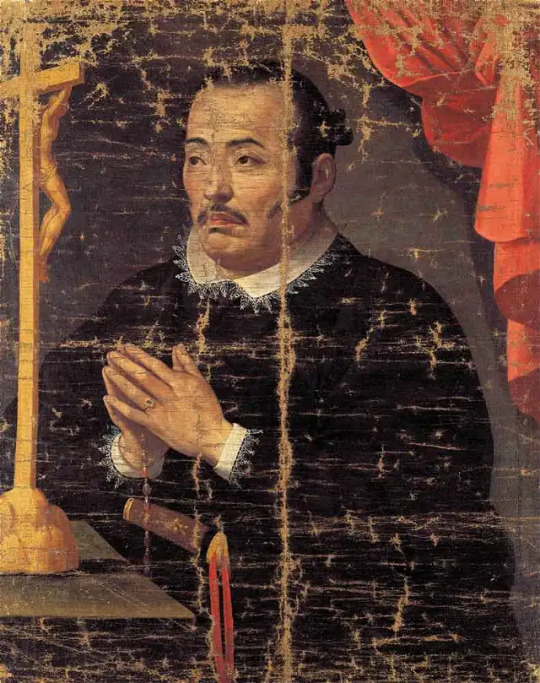
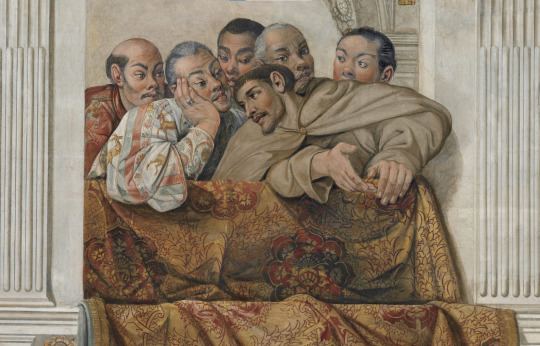
Furthermore, it's not unrealistic for Japanese people to travel to Europe, because there's historical precedence for this. In 1613, Hasekura Tsunenaga was sent on a diplomatic mission to negotiate with the pope and the king of Spain, and some of his men even stayed behind to form the Japon clan in Spain. The expedition took 7 years, and ironically enough, once he returned, christianity had already been banned in Japan. The people who still kept the Christian faith in spite of this came to be known as kakure kirishitan.
Debauchery means it's for adults ..
The way characters (esp. Mizu) will throw out badass oneliners as if on a treadmill, only to contradict exactly what she said as short as 5 seconds later does mess with my suspension of disbelief.
The story also goes into protitution and patriarchy, though it also felt superficial to me. If anything it feels like an excuse for fan service, similar to Game of Thrones in a sense. Like they know that sex sells, and that's what "the audience really wants." That said, again I enjoyed both GOT and Blue Eye Samurai, even though some may laconically break the former down to "dragons and tits" and the latter to "guts and tits".
Token representation
Mizu's apprentice was born without hands, which could have brought about an interesting exploration of disability. But instead, he's relegated to being a quirky sidekick and comedic relief..
BES is an American story
Blue Eyed Samurai has all the visual motifs of a Japanese samurai story (jidaigeki), but the tropes and logic is extremely American. It does get the artifacts and set dressing of a jidaigeki story right (surprisingly accurate at some points), which is why it triggered the uncanny valley for me sometimes. When certain artifacts and set ups appeared, I expected it to follow certain tropes I'm used to from jidaigeki, but it didn't really do that.
Kung Fu Panda
In contrast, Kung Fu Panda is also in the same boat. It has the artefacts of a Chinese wuxia story, but it is ultimately based on Chinatown (a theme park-esque idea of China designed by and to cater to white people, as a Chinese American defense mechanism). However, where Kung Fu Panda is an American love letter to Chinese kung fu films, Blue Eye Samurai isn't really a love letter to jidaigeki, and caters rather to white people's idea of the stereotypical samurai.
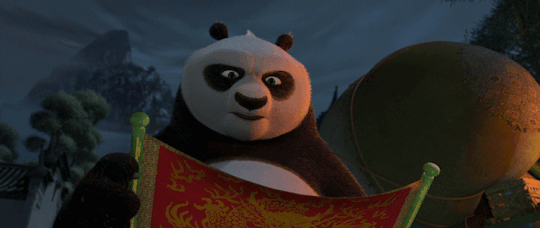
My understanding is that Kung Fu Panda is pretty popular in China.
Yes, Kung Fu Panda is popular in China. I also enjoyed Kung Fu Panda, which is why I used it to compare what I felt was lacking in Blue Eyed Samurai. If I had to choose one to rewatch, I would rather watch Kung Fu Panda.
That said, Accented Cinema points out that although Kung Fu Panda is often used as an argument of successful orientalism, it's rather about China's own failure in representing themselves. In my opinion, Kung Fu Panda's perhaps saving grace was that it didn't take itself too seriously, yet still delivered on the serious bits when it needed to.
Patriarchy and gender roles
While I understand and appreciate your critique, I don't think the narrative is grounded in realism. It's more like expressing the need that women do have to see themselves in the shoes of a physically invincible protagonist. Also the motivation isn't simply revenge - what has happened to Mizu has convinced that her very existence is suffering. She's internalized the hate to an extent that it no longer matters whether she lives or dies. She will slowly change as a person and her motivations will also change, which I hope we get to see . All the characters are somewhere trying to rebel against their gender roles, and that I feel is the 'message'. Also as far as the right antagonist to show goes, Fowler seems an indictment of British colonialism a few centuries too soon, but his attitudes aren't unfamiliar. At all.
Blue Eyed Samurai doesn't explore the concepts it references or markets itself with, but seems to throw them around because samurai and honor sounds cool and is a stereotypically Japanese/Sinosphere thing. Instead it'd rather explore gender roles and patriarchy. And the character Blue Eyed Samurai primarily uses to explore these themes with isn't the titular protagonist, but rather Princess Akemi.
But Akemi's struggles with patriarchy, also comes off as more a Western suffragette story than a Sinosphere one.
The Princess as a Caged Bird
Other stories about gender roles and patriarchy in ancient Japan to which we can compare this to is probably Isao Takahata's Princess Kaguya, though this one is probably set long before BES in the Heian period.
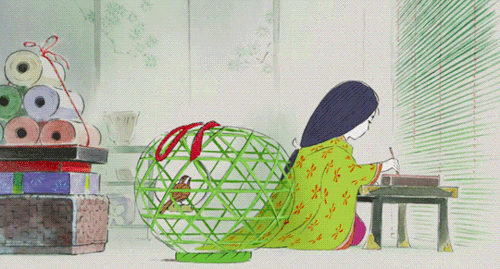
Like in Kaguya, the ohaguro set is presented as a symbol of oppression for Akemi. However, instead of being explicitly oppressed by outside forces like Akemi, Kaguya is instead pressured by societies and her father's idea of what a princess should be to become happy. Throughout the film, Kaguya questions what it is all for and even counters against her governess that "a princess is not a human then!"
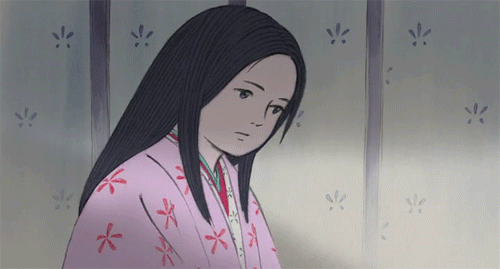
Princess Kaguya as a roadside flower. To be plucked in a moment of fancy, and neglected once savored and bored. Merely a trophy to be won and stowed away in a display cabinet.
The film explores what makes life worth living, by exploring the difference between humanity and moon people.
Filial piety. Fulfilling your own dreams through your offspring. Showing off achievements to relatives (accumulating merit).
Geisha and maiko in contrast to the Oiran of the red light district. Streetwalkers. Prostitution - the world's oldest profession.
Oda Nobunaga's younger sister in Nobunaga Concerto and Azumi.
Hypergamy. Tradition of men being adopted into the wife's household. The Fujiwara clan of the Heian period, who continuously married their women into the imperial family for generations. Attitudes around cheating and monogamy (Genji Monogatari).
The Fallacy of the Stereotypical Asian woman
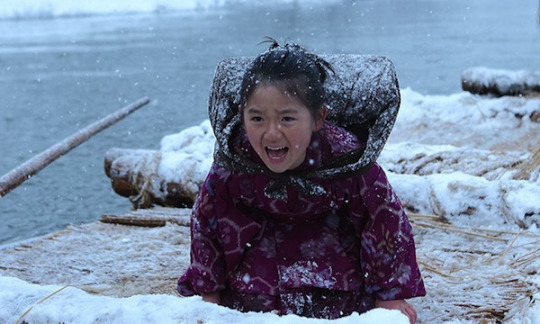
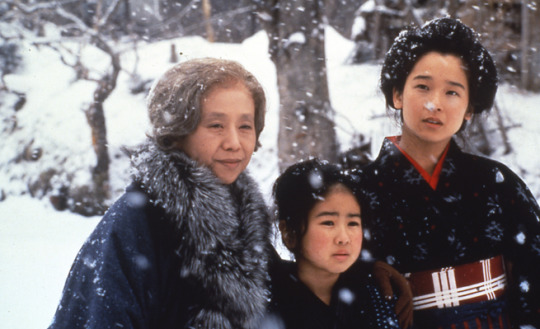
Oshin - Resilience and endurance.
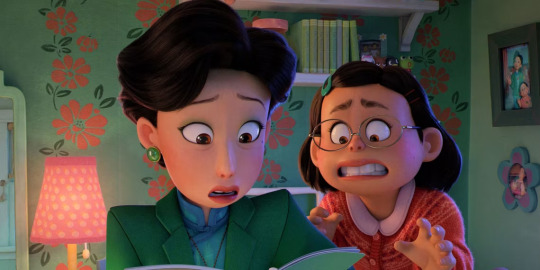
Asian women as firecrackers. There's a reason why the stereotype of Tiger Mom even came to be, because Asian women and people in general are not weak and strictly submissive, although they are often mistaken as doormats.
Honne and tatemae
Yamato Nadeshiko
While writing about this, I ended up going on a tangent about Asian women, which you can read here: The Fallacy of the Stereotypical Asian Woman.
Gender roles in Genderbender
Kaze Hikaru
Ryou
Torikaebaya Monogatari, where a brother and sister in the Heian period is gender mixed at birth, to fulfil gender roles they're more "suited" for according to societal expectations. Another Heian period text about a guy who crossdresses as a woman to get close to a woman he has a crush on.
Gender fluidity has been the norm throughout most of history.
A wolf in sheep's clothing
I guess the show is more concerned about gender roles and patriarchy. I'm actually not all that concerned with historical accuracy, but I couldn't help but be thrown off by how it felt like vastly different time periods (and thus different expectations in terms of jidaigeki tropes) were meshed together. I still stand by that the show is a very (overseas Asian/) (Asian) American narrative, which made it uncanny how accurate it still was in terms of getting the artefacts etc. of a jidaigeki right. Sort of like a "wolf in sheeps clothing," though that doesn't make it a bad thing. For example, Akemi feels more like a Western suffragette, rather than an Asian feminist. Yet the ohaguro set etc. may be a reference to Isao Takahata's Princess Kaguya, which is about feminism.
The story came off as stereotypical to me. Yet it does get the artifacts and set dressing of a jidaigeki story right (surprisingly accurate at some points). I did cringe at some points or feel the uncanny valley, but again overall the show was engaging and enjoyable.
I've enjoyed other orientalist stories before, such as Kung Fu Panda and Avatar the Last Airbender. I've also enjoyed occidentalist stories like mohuan and isekai. Yet something with Blue Eye Samurai made me cringe sometimes. Comparing it to the others I've mentioned, perhaps it's because it's set in a more non-fantastical setting as opposed to a jianghu of sorts idk. Blue Eye Samurai is still entertaining though, and may be the start of a new genre.
It's hard to explain what it feels like for people who don't have the same cultural references, so here's an example of occidentalism. I noticed that when Genshin Impact (a Chinese game) released the new Fontaine region where they decided to mix Britain, Italy, France etc., which people claimed is just plain weird haha. But Fontaine has still been well received regardless it seems. On the other hand, I still cringe every time I see Senator Armstrong in Metal Gear Solid.
Historical references
Random, but here's a list of different artifacts and set dressings that appeared in the show. The little theatre play about the ronin and his wife uses kurogo (black clad actors) to manipulate the dolls, which was novel to see. Previously I've mostly watched kurogo being used to manipulate perspective such as in this Matrix Ping Pong skit and the Tokyo 2020 pictogram opening ceremony. Traditionally, Kurogo is used in Kabuki to create special effects and are supposed to be invisible to the audience.

Mizu's husband uses a naginata, which is basically a spear. Although also used by warriors in general, it was often used by women.

#Blue Eyed Samurai#Netflix#review#criticism#Azumi#Kung Fu Panda#Ghost of Tsushima#Avatar the Last Airbender#samurai#bushido#shinobi#ninja#onryo#gaijin#Sakoku#karma#revenge#uncanny valley#kurogo#feminism#orientalism#occidentalism#decolonization#blog
86 notes
·
View notes
Text
How I would’ve constructed the 10 year time skip
✨Brought to you by my deep loathing for Lore Olympus✨
•warnings: super long post (I’m not joking), death, kidnapping, violence•
What The Fuck Happened
There was so much potential for the punishment arc. We could’ve seen a lot of character development, fleshed out storylines, reconciliation between certain people. We could’ve seen both Hades and Persephone going to therapy instead of claiming that one therapy session has fixed all their problems and then never going again.
Instead we got horny Persephone, pretty much no clue about what happened to Demeter OR Persephone during that time, and an easy plot device (sorry Cerberus) for Persephone to be like “I’m a big girl now harrumph harrumph, time for me to go reunite with my crusty ass bf who I’ve only know for a month”.
I hate the way she reunited with Ares. Ares is just a bonafide creep throughout the whole comic (although I liked when he attacked Zeus lol). I guess what I mostly hate about Ares and Persephone’s interaction is, yet again, it’s another example of every guy in the comic going AWOOGA over Persephone. Also Athena’s design is so fugly. I guess Rachel is completely incapable of drawing masculine presenting women as actual women.
The whole Kronos plot line is stupid. I hate it so much. Imo the whole “the titans are trying to escape so they can rule Olympus again” is overdone and not particularly done well. The fight between Kronos and Persephone is lame as shit. Like what, she gets big for all of 20 minutes, burps out a bunch of bees (which aren’t even aggressive creatures), and then does her version of the Wuxi Finger Hold from Kung Fu Panda and has Tartarus spirit Kronos away, magically fixing all of their problems (except it doesn’t and nothing is actually fixed).
Also I might get a lot of flack for this, but I don’t think the addition of Morpheus’ character was necessary. I like Morpheus. I think she’s cute. But she’s a) slowly turning into another version of Hecate and b) not really vital to the narrative imo. We already have so many other characters and plot lines that take away from the central “romance” the story is SUPPOSED to be focused on. I just don’t think we need ANOTHER character whose arc is probably not going to go anywhere.
So yeah, overall very L writing, L plot, and L characters.
What I would do differently
The first thing I would change is that the whole punishment arc would be an entire season unto itself. You’ll see why it has to be a separate season.
The second thing is (and this literally pains me to say) in order for me to rewrite this portion of LO without rewriting the entire comic, I kinda sorta have to throw the entire timeline of Greece out the window. If I try to follow a timeline based on the history of Greece, the entire timeline of LO has to shift massively. I’m already getting a migraine trying to think about how I could possibly make it work.
I do know this: Instead of 10 years I’d do somewhere between 1,000-3,000 years. 10 years is a joke. When you’re a god, 10 years is a trip to the time out corner
For now, let’s just say (assuming LO takes place in the Ancient Greece era) and Ancient Greece spanned ~1500 years, Persephone’s punishment would’ve needed to have been established near the very end of the collapse of the Late Bronze Age, spanned the entirety of Ancient Greece as we know it today, and ended some time in the very early Byzantine era. So like what, 1500-2000 years? Fine. I can work with this.
The Famine
You know how the first 400 years of Ancient Greece was deemed the “Dark Ages” and it was a time of war, famine, and loss? I want to start the punishment there. It would make sense for what we know about the characters thus far:
Demeter has had complete control over the growth of the flora and fauna on earth. She’s the goddess of the harvest after all. But we also find out that while Persephone has been in Olympus, Demeter has also been carrying out her duties as the goddess of spring. Plus Demeter has been around for forever and a day. She knows what she’s doing
Persephone doesn’t (at this point in the comic) really have control over her powers. Even in her fits of rage, she ends up doing more harm than good (i.e. her act of wrath, turning Minthe into a plant, etc.). In comparison with everyone around her, she is a literal infant. I mean shit, she’s only been alive for 20 years compared to the fact that everyone else has most likely been around for a minimum of 500 years.
If Demeter is stripped of her status as a goddess (and thus her powers) it would make sense that there would be a lot of death and famine and war over territory/food. Persephone would be left with nothing: no guidebook, no how-to. Of course a lot of people would die while she’s trying to figure her shit out. It could also be a very interesting tactic for psychological warfare on Zeus’ part. Zeus KNOWS Persephone doesn’t know what she’s doing. He knows people will die. And he knows that since life is precious to Persephone (or at least that’s what she claims), it would punish her further.
We can see episodes of Persephone struggling to provide for humanity. We could have real world examples of the affect of famine and depopulation. We would see her struggling with her powers, her mental health. We could get an episode that explains how her hands got destroyed from trying to mimic her mother’s powers. We can see what the fuck happened to Demeter in Attica.
Now obviously things will eventually go on the up and up for Persephone and her compatriots. The whole 1500-2000 years isn’t just going to be one big clusterfuck. As time progresses and chapters pass, we could see real character growth for Persephone not just mentally, but in almost every aspect. Since she will have been alive at that point for over 1000 years, the readers would be able to see her newfound maturity. We could also see her build strong female support systems and strengthen her friendships, something we NEVER saw in the OG comic (or at least they never happened without Hades somehow being involved). You get the point.
What’s Old Man Hades up to?
I have big plans for Hades and none of them involve him going into a 1000+ year coma or getting possessed by his creepy-ass dad. He is an asshole though. I kinda wanted to portray him in this the way he is in the original myths (which for those who don’t know or haven’t read it, it’s not good).
So in Greek mythology, Hades actually had a wife before he even met Persephone or Minthe. Can you take a wild guess as to who?
Bingo! It’s Leuce. Contrary to popular belief, Leuce is actually NOT a home-wrecking POC version of Persephone (don’t @ me we all know the nymphs represent the lower class and POC). In mythology, Leuce was Hades’ first wife/lover and she died sometime long ago and I believe was turned into a white poplar tree. No she is not a cousin of Thetis and Amphitrite. She is not even remotely related to them. And Thetis and Amphitrite are sisters, not cousins. Do your fucking research Rachel.
Unfortunately, Greek Mythology doesn’t really mention all that much about Leuce outside of the fact that she was a daughter of Oceanus, she was kidnapped by Hades, and when she died (for unspecified reasons) she turned into a tree. Which means I’m going to be taking a lot of creative liberties for this portion of the post. Sorry to all you diehard fans of Greek myths out there. I shall try to do her justice.
In my head-cannon Hades and Leuce had been in an arranged marriage for thousands of years. Leuce was offered by Oceanus as a peace offering after the War and Hades, not really having any other viable options for a wife, agreed to take her to the underworld (much to her dismay). Over time, they grew to have a mutually loving/caring relationship. Unlike LO Persephone, Leuce was a good queen and she worked hard to make sure the denizens of the underworld respected her and that they were well cared for. Unfortunately, they got divorced because Hades starting having an affair with Minthe. Even though she loved her kingdom and the people of the underworld, she divorced Hades because she couldn’t stand to be around him, which, y’know. Fair.
A few notes: in my head-cannon, Leuce is still around leading up the the trial and punishment. Her portrait would still be up, we would see signs that Hades and Leuce still interact (more in terms of business, not romance), etc.
Also, unlike Persephone, Leuce would not take her anger out on Minthe or turn her into a plant or destroy her apartment. She would simply wish her good luck. She would be mad at Hades for cheating and for taking advantage of Minthe while she’s at her lowest. But I’m going to be straight up: even though Leuce is meant to be the better Persephone, she still has her flaws. She’s not going to feel inclined to help Minthe in any way. Would you want to help out the person who your partner is cheating on you with? The answer is no and if you say yes, you’re lying.
Anyways, during the Punishment, Hades and Leuce reconnect and Hades finds out Leuce is dying. He tries to convince her to leave the underworld and return to her father, but she insists that she is going to stay, even if it means she dies away from everyone she loved. She won’t abandon her kingdom, her people, or her ex-husband (although that’s much better than he deserves). They move in together and Hades begins to take care of her, even as she begins to deteriorate. They also begin to rekindle their past relationship and (with the help of a therapist) work through some of their past problems together.
Note: their relationship rekindles a couple hundred years into the punishment so by the time the punishment ends, they’ve been back together for a minimum of 1200 years
The aftermath and the Rape of Persephone
Before any of you go gaga over me for the title used above, the original title used for the myth is The Rape of Persephone (or if you want to be really original, The Rape of Proserpina). In the context of the title, the term “rape” means to be taken/kidnapped rather than having sexual violence inflicted upon you. Rape stemmed from the traditional Latin word “raptus” which means “to be seized” or “carried off”. Okay? Okay.
So after the Punishment ends and Persephone feels like she has thoroughly improved herself, she goes to find Hades and talk with him about their relationship. Mainly that she feels they rushed into it, and even though she does like him she wants to take things really slow (kind of like how she wanted before getting married 3 episodes later).
Upon arriving to the underworld/Hades house, her worst fears are realized: not only has Hades (seemingly) moved on, he has found someone else. Or rather, he got back together with his ex-wife.
Persephone freaks out (“who is she?”/“I’m his wife!”)
Persephone, throughly upset for getting her hopes up, flees back to mortal realm. Hades goes to leave Leuce, but not before she tells him that if he leaves her for Persephone, she will never forgive him. Hades leaves anyways, much to the absolute despair of Leuce, who is left wailing as he runs off.
Persephone returns home and finds Demeter and they hug. Demeter is initially horrified to see what happened to her hands, but is proud of the work she did during the punishment. Persephone cries to her mother about Hades, and Demeter tries to comfort her but it inadvertently comes off more as “I told you so” rather than “I’m sorry you had to experience that” (although Demeter is sorry that Persephone’s heart is broken). Persephone, already feeling incredibly emotionally distressed, lashes out at Demeter and they start to argue. This is when Hades arrives.
Hades sees Demeter and Persephone arguing and inserts himself into the situation. Persephone becomes more upset after seeing him and Hades (assuming that Persephone is upset about the fact that Demeter is getting in the way of their “relationship” and not the fact that Persephone discovered Hades went back to his ex-wife after saying he loved her) whips out the the “one personal question, no exceptions” card and proposes to Persephone. He insists that he loves her and only her and that they should spend the rest of their immortal lives together.
Persephone says no.
Hades, not taking no for an answer and not wanting to leave the mortal realm empty handed, kidnaps Persephone, much to the dismay of Demeter, Artemis, and the nymphs. Hades returns with a traumatized Persephone to the underworld to find that Leuce has died and turned into a white poplar tree. While Persephone is sobbing on the floor, Hades weaves a mock crown from the branches and leaves of the tree, places it upon Persephone’s head, and tells her she better get used to their life together.
Thus ends the season and the punishment arc.
Afterthoughts
Thank you for sitting through my ramblings. I officially joined the anti-LO community about the time the trial happened and had been wanting to make a post like this for a reaaaaally long time. Besides the fact that the trial in of itself was completely unethical (@genericpuff made a whole post about that) the punishment arc just really pissed me off. Like go girl, give us nothing!
Anyways, I may or may not do a whole timeline reconstruction of LO depending on how much I feel like offing my sanity with the amount of research that would have to go into that. Until then, I hope you like this post and look out for other anti LO posts coming your way :)
#lore olympus#anti lo persephone#anti lore olympus#unpopular lo#unpopular lore olympus#kung fu panda#anti lo#lo criticism#lo critical#long read#lore olympus criticism#lo critic
78 notes
·
View notes
Text
Why Oogway from Kung fu panda is the most supportive grandpa and not a huge bitch!
And your fave villain is actually a huge bitch! <3
Now, I know what you’re thinking? Why the inflammatory and very obviously vague post? Because it’s being spread everywhere like wildfire and I’m tired of it. We get it, you all love your men like Tai Lung and Kai but they're not the UwU babies you HC them as, and blaming Oogway isn’t making them look cool or cuter.
So, without further ado, I, Oogway’s lawyer will step up to this fandom’s unjustified hate for him just cause they got hit with the consequences of their actions.
Now, let’s start with the first movie because you people can’t seem to grasp the simple lesson in the film that “Your actions have consequences.” Okay, remember that? It’s very important. And I need you to remember it okay? I’m counting on you!
Alright, let’s start with the literal first scene with MR. PING AND PO:
Yes, this is important, just stick with me okay? Po asks his father right at the beginning if he ever wanted anything else in his life outside noodles.
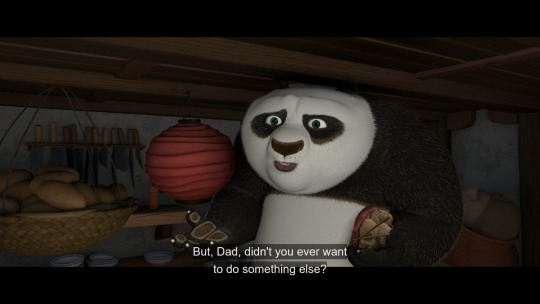
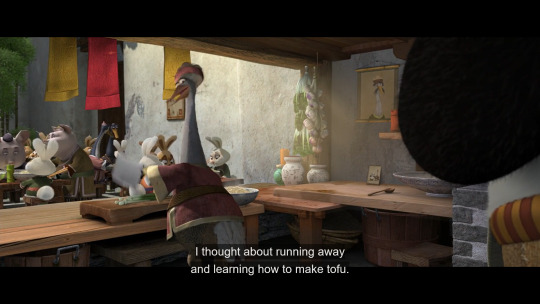

He even calls his own dream stupid, and you can see he slightly regrets it in the scene if you watch closely enough. This was the first mistake Ping made, he was repeating a cycle of denying the younger generation of their own dreams and needs without even realizing it.
Now, we can actually get to our favorite turtle.
Two things we have to talk about before we move on is the fact, this second scene is dedicated to foreshadowing mostly Shifu’s character, every little reaction to Oogway is a means to tell us why Shifu needs to calm down and think before he acts. Remember? “Your actions have consequences.”
Now, you're probably looking at the scene like, this was just a funny joke scene but no. Shifu is distressed expecting nothing but the worst news while Oogway is calmly accessing the situation at hand, he doesn’t reprimand Shifu because he knows the pain his friend is going through, he was there for it and stopped it before it could kill him.
Shifu here displays everything about the quote below, had he not rushed Oogway and merely listened to the very end he would have understood what to do.
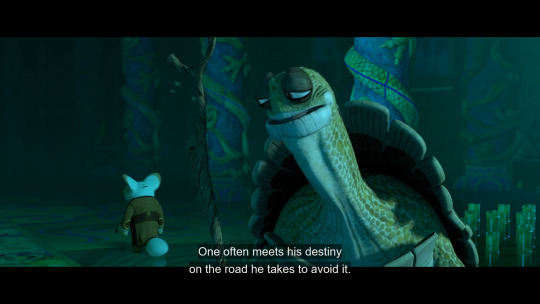
This is one of the rawest quotes that follow Shifu and his son throughout the first film, they are both avoiding the inevitable, trying to stop what must come. Life doesn’t bend to your will and that’s what Oogway is telling Shifu right here in the present.
But what does this dummy do? Try to ruin what Oogway was doing from the get-go.
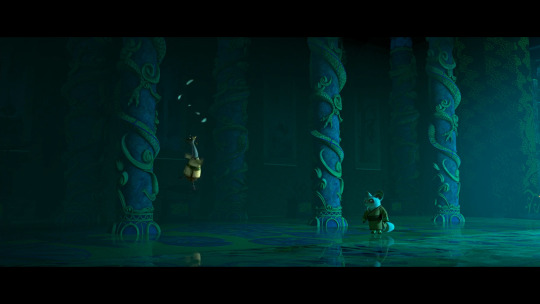
Had Shifu not panicked and quickly told Zeng to leave then Tai Lung would have never escaped. IT'S IRONY AND say it with me, the consequences of his actions. Oogway even tells him this in the scene where he reveals it is time to pick the Dragon warrior, and Shifu makes so many assumptions that Oogway never speaks of the legend itself. Shifu makes the Dragon warrior seem bigger than life itself but Oogway never says that. If you haven’t realized: Shifu assumed things.

He’s not actually seeing the true picture Oogway is laying out for him, he’s just waiting for that big moment, uncaring of how it affects others. (Aka the five cough his own daughter cough and even his own son cough) He’s clouded the water for everyone and only Oogway is the one who sees it for what it is.
Oogway does nothing but tries to guide Shifu away from this mentality that not only destroyed his own son but himself in the process, remember the Ping scene I showed you at the beginning This is the same thing. Shifu has done nothing but projects himself onto others and that’s not only an aspect in the films, it was in the short “Secrets of the scroll” too.

“You must let her grow into what she must be.” - Oogway.
This isn’t the first time he's said this to Shifu and surely will not be the last. Shifu is by all means a stubborn character who leans very heavily toward how traditional Kung fu is taught along with its ideals. He focuses on strength, speed, and endurance above all else which is also shown in the film's training course. He does not divert from tradition, just like Ping.
Oogway doesn’t hold the same ideals but respects Shifu unconditionally despite their differences.
Because he respects and cares for Shifu along with his children.
He does the very same with Po, never outright disagreeing because that’s not helpful to them, that won’t allow them to grow as people. Into who they are meant to be. Po goes on and on about how he sucks and Oogway is understanding, he doesn’t say “Oh you’re great just the way you are.” He allows Po to vent the way he wants to and gives him actual support when he needs it most.
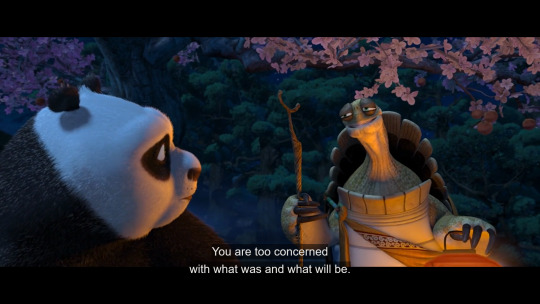
Po shouldn’t be concerned with how he sucked today, because he can try again tomorrow and get better as time goes on! And that’s the truth when you start something, especially something as difficult as Kung fu with a teacher who's comfortable bullying someone 40+ years younger than them is HARD. But what Po needs to focus on is the PRESENT. He tells that to EVERYONE. To focus on the now instead of the past or the future, that’s why it’s a gift. Because you can choose who you want to be at that moment. The past is already gone, decided, and written, and the future is uncertain and leaves you with nothing but anxiety at what could be.
But right here, right now. You have a choice.
And now we get to the main man himself, Tai Lung aka the loser stuck in the past:
Now again, you’re probably pausing like “Really man? Calling Tai a loser from the get-go, do you have no shame?” And I reply with a “No, I do not.” Because he is a loser and the film shows that.
Very clearly.
I know we all love the awesomeness of the escape scene but think about the context of it real quick:
This FORTY-YEAR-OLD MAN, let me say this again FORTY YEAR-OLD MAN, was hard-pressed to release himself for one thing and one thing only, The scroll saddled with his revenge for something he was never promised after endangering innocents in the past and then endangering more guards for a scroll.
Take that in for a moment. Doesn’t that sound like loser behavior? Don’t you think maybe he could have taken that time to, I don’t know, think about why he wasn’t chosen or if he wanted literally anything else in his life. He had no one to talk to, so he should have been using that noggin’ for something useful but he didn’t.

Oh, lookie here! It’s “THE CONSEQUENCES OF SHIFU’S ACTIONS NEGATIVELY AFFECTING THE PEOPLE AROUND HIM!”

Also, this man is out of his goddamn mind.
Like we have to move forward here so we can realize the full delusion in this single frame.
But I’m getting off-topic, we have to talk about when he was rightfully denied the scroll.
Now we have to note two very important lines here because Tai Lung fans have very selective memories, so we need these screencaps

Okay, that is the first line, the second is Po’s line before this, it’s very clear even to the common folk in the Valley, Tai Lung was an ambitious, selfish, and one-track-minded fella. With the line:
“He turned bad and went to jail.”
Now, let’s think back for a minute about Oogway’s morals. He supports people who are kind and uplift others even though sometimes they do questionable things, Shifu bullying Po-but that’s for another conversation. But he obviously would not pick someone who is solely focused on such a selfish goal.
We all know the scroll is blank, and you have to love and accept yourself for who you are in the present. Tai Lung would not be able to understand much less accept that because he wanted the scroll to change him into something Shifu told him about, not Oogway. Oogway had every right to refuse Tai Lung, that’s his school, his house, his scroll and without him, he and Shifu would be without a roof.
Now, remember what I said about Shifu’s beliefs in traditionalism right?
You're supposed to listen to your master as they guide you, Shifu albeit a stubborn student and Master, listened to Oogway, and Tai Lung should have followed suit, he grew up there. But no he CHOSE to ruin everyone else's day, and let me show those innocents by the way.
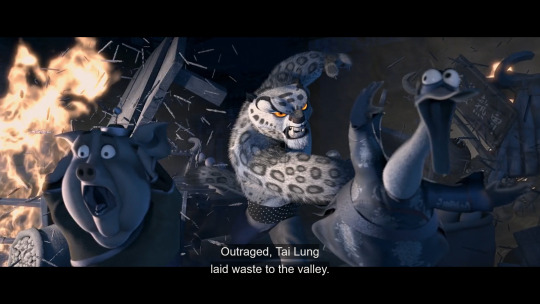
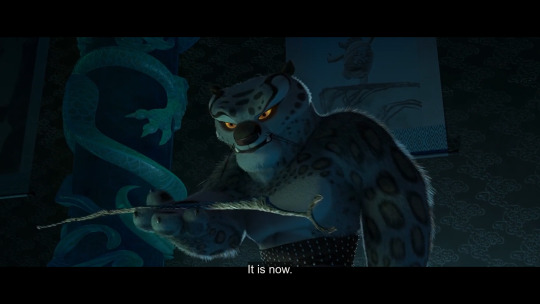
HE'S LITERALLY ASKING FOR SHIFU TO COMMIT FRAUD!
Tai Lung showed what his ambition truly was and Shifu didn’t see until it broke right through him literally, Tai lung doesn’t even hesitate to swat his father aside before going for the scroll before Oogway stops him and spares his life for his old friend, Shifu. Because he cares.
Oogway cared about Tai Lung and let him choose who he wanted to be.
Remember? Actions have consequences.
Tai lung has had two instances of his life where he could have chosen to do better and what did he do? He fucked it up. Just decided to be a bitch ass sore loser instead of bettering himself which is what Kung fu is about, it’s what Po did.
But you know, that’s life.
Speaking of, Shifu is mostly at fault for this. I think everyone knows that? Oogway as I said above with the short, tries his best to guide Shifu on his horrid parenting journey but such is life. I’m sure we all know someone who shouldn’t be a parent and if we could we would ban them from being around children in general.
Back on topic, Shifu has a problem of not listening to Oogway as we’ve established:
- Didn’t listen til he got sick to let Tigress be herself
- Bullied Po and didn’t listen until Oogway died
- Filled his son and daughter’s heads with untrue folklore of the Dragon warrior missing key elements such as Kindness in the memo…
- Also, he tried to “Well, ACK-TUALLY” him in an argument about control.
Shifu is not a very bright man. And neither is his son.
Po and Ping are a direct mirror to this though in the fact that, unlike Shifu, Mr. Ping stops and realizes his son is in distress about the whole situation and does something special. He tells him the secret ingredient which is nothing but believing something is special because he believes Po is special.
Shifu stopped believing in his son, which is why Oogway asked him to promise to believe and even took his meek reply of “I’ll try.”
When Shifu and Tai Lung met again they couldn’t mend what Tai Lung destroyed, not even an apology could heal what his son broke inside Shifu. And Oogway knew this.
Because you can’t force a peach tree to grow into anything else but what it was meant to be.
No one in the Jade Palace was meant to be the dragon warrior, they should have been training for themselves but they followed Shifu.
Nothing was ever promised to anyone.
And again, that’s the beauty of life, you can change. Every day you change, every time you look into that blank scroll you see every little change you worked for and some you got along the way figuring it out.
Tai lung does not have that though, all he has is Kung fu and that’s Shifu’s fault. Not Oogway’s, you cannot blame someone who never promised you a thing and simply told you no. You have to move on.
Tai Lung even naively states, he only thought of Shifu’s opinion, never the Master who bestows the scroll itself. He was not in the present, all he wanted was the future he was never promised and blamed everyone else for it and hurt his own father, in the process.
Not once, but twice.
Shifu only admitted Tai lung was not meant to be the Dragon warrior and that it was never his decision to make and even goes so far as to ask Shifu to falsify the results of who the Dragon warrior is.
Shifu was too late in allowing his son to dream.
Oogway had nothing to do with any of their dramas. They decided to push themselves so far instead of cherishing the present.
And that’s why Oogway is the best grandpa because he doesn’t force his ideals down your throat because he listens to your troubles without downplaying how bad you feel because he believes in the power of change that we all have but accepts we don’t always take the right path.
That is the true gift. The gift of change.
As for Kai um idc, he was stealing people’s chi, aka killing them, and being a horrible person to people who helped Oogway in his darkest hour, so fuck him. I still love his theme but again, Kai’s actions caught up with him and he caught them tortoise's hands for being an asshole.
Bye~! Also, Shen's a bitch too.
#Kung fu panda#Master oogway#long post#I am so sorry#Master Shifu#Tai Lung#Mr. Ping#Po Ping#character analysis#can i count this as movie analysis?#Look I need this fandom to chill out with the its Oogways fault when Shifu is right there#Its always Shifu's fault#taylor talks#fandom critical#someone save me#would you believe me if I told you this was longer?
254 notes
·
View notes
Text
Sometimes I do wonder if as an adult I've become too jaded with my entertainment. I think that I can't enjoy newer products cause I expect too much and idealise the films I adored in my childhood and teenhood. And since I'm not the target audience anymore I shouldn't complain or judge so harshly.
But then I go to rewatch those and I find myself still getting swept away by them. They are amazing! They hold on! It's not just nostalgia. They were just that good!
Anyway this post is about Kung Fu Panda 4 and how it sucked major ass and how the OG trilogy and especially part 2 are still masterpieces and I'm not biased.
Hearing about wasted potential artists had in mind and how it got changed for this stale bullshit is so frustrating at this point! Producers please stop fucking up good shit with your greedy little soulless gremlin hands. You don't know jack shit!
Also Puss in Boots 2 is a modern masterpiece so it has nothing to do with my current taste either. Mid shit just sucks and DreamWorks has no excuse.
19 notes
·
View notes
Text
OK FINALLY: JADED DESTINY!
Summary:
Gone, but not forever...
It's not so easy to get rid of Kai: in fact, it turns out to be very, very difficult. When he suddenly returns with a mysterious new partner and an axe to grind, Po's idealistic life of teaching is thrown into pure havoc as he and his students rush to stop them before they steal the chi of every last master in China, and then the Wellspring itself.
But things aren't so simple this time around. Kai's learned from his mistakes, and he's done pulling his punches; he has nothing to lose, and everything to gain, starting with destroying everything Po holds dear.
Kai has returned...and he's ready for a rematch.
Spoilers without context:
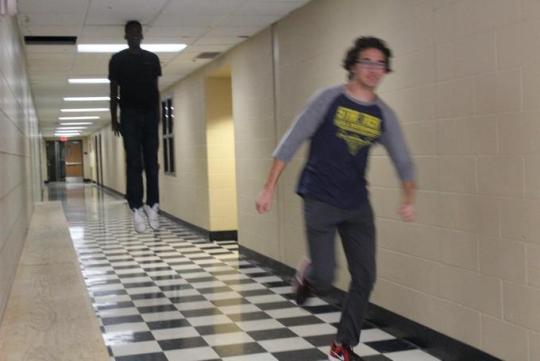


#kung fu panda#general kai#kai#oc#jaded destiny#this took me so long!#feel free to leave constructive criticism!!!#I hope you enjoy!#fanfic#fanfiction#kung fu panda 3
7 notes
·
View notes
Text
Kung-fu Panda OCs! Because the new trailer was cool af


Jaguar - her name's Yue, she traveled to China at a young age and now work in a shop, sometimes she practices kung-fu with Kuai
Fox- Here's Kuai, she trains kung-fu and more often than not she brings Yue along on her "adventures"
Frying lemur - He's Angin, his name come from a filipino word and means wind (take that with a pinch of salt, google tradutor was my source), he's friends with Kuai
Blue boa - The snake is Magnolia, a flower name to tree boa sounded cute and I went along with it, she work at the restaurant next door and is Yue friend
Beetle - Jian, he and Yue work in the same store, they are not exactly friends, but sometimes he goes along with them
Owl - Lieren, he's Magnolia boss and friend, also starting to get really tired of dealing with Kuai bullshit and Yue distracting Magnolia at work time
#kung fu panda#oc#sketch#drawing#jaguar#fox#lemur#snake#beetle#owl#i accept criticism#be nice please#or i will cry
4 notes
·
View notes
Text
Almost all Kung Fu Panda villains are better, more memorable, and more iconic than Ozai because of one simple reason: They all show that they can only be taken out by the dragon warrior instead of that fact just being told to us repeatedly.
You'll notice that each one provides a specific challenge for Po: Tai Lung gives a physical challenge, Shen gives a mental/emotional challenge (in addition to having better resources), and Kai provides a spiritual challenge. They are seen defeating everybody else they face.
What challenge does Ozai provide? A morality-based challenge? The challenge that wasn't even thought about until literally the last second of the show? The one where the solution just falls onto Aang's lap without him having to earn it in any meaningful way?
Aang's whole premise as the avatar is to become a one-man team avatar/white lotus, a one-man army/master-of-all archetype if you will, to master himself physically, mentally, emotionally, and spiritually, just so he can win a fight against this one man.
Ozai should show off way more challenges than that and the only villain from the Avatar universe who could was Vaatu.
5 notes
·
View notes
Text
Y'all know that movies can criticize one thing and focus on THAT thing without like... Tackling every social issue known to woman right...? Like tell me y'all know that lmao
#sorry someone reblogged a post shitting on the barbie movie bc it didn't do enough for body positivity compared to kung fu panda#its almost like barbie is about going from girlhood to womanhood and why a society where women are subjugated is bad#while kung fu panda is about a fat character being judged and having to prove that he's capable regardless of size#its ALMOST like those two movies are completely different movies with completely different focuses#barbie had a bunch of different body types too like.............#people complained that they make celulite seem like a bad thing as if that wasn't just the manifestation of a woman's worries#A LOT of real women do think celulite is bad and they'll regularly complain about having it#barbie was also worried about it bc 1. gloria was making her worry and 2. it made her different from other barbies which she didn't want#PLEASE FOR THE LOVE OF GOD GAIN SOME KIND OF CRITICAL THINKING AND MEDIA ANALYSIS SKILLSSSSSS#sorry i had to rant im too incensed over this not to#mari just saying things
12 notes
·
View notes
Text
i saw kung fu panda 4 today and was it just me or were the dads fruity
#honestly ? it wasn’t that bad of a movie in my opinion#but i’m not a movie critic so i’m probably wrong#who knows !! i had fun watching it#kung fu panda 4#random rambles#my posts
5 notes
·
View notes
Text
Kung Fu Panda 4 Review: A Painfully Bland Cash Grab
After Pie is tapped to become the Spiritual Leader of the Valley of Peace, he needs to find and train a new Dragon Warrior, while a wicked sorceress plans to summon all of the master villains whom Po had vanquished to the spirit realm.
Dreamworks, I am not mad, I am simply just disappointed with you with your latest installment of the journey of the Dragon Warrior in Kung Fu Panda 4. After the surprising masterpiece of Puss In Boots: The Last Wish, I was expecting something exceptional, but what I got was the definition of mediocrity. Never before have I seen an animated film that is so predictable that it not only insulted my intelligence, but the intelligence of its target audience. Within the first ten minutes of the movie, you can predict the entire story. Every twist and turn could be seen miles away. From a character's obvious betrayal to their unearned and rushed redemption arc, this is an insultingly predictable script. Then when paired with a villain who has one of the stupidest villain motivations I have seen in a long time, leads to nothing but mediocrity.
What is even more frustrating is the story of Po passing on the mantle of the Dragon Warrior and becoming a spiritual leader could have worked if properly set up. The story in its current form makes no sense as it contradicts the entire arc that Po has been going through in this franchise and that Po is not ready to become a spiritual leader. In the movie, it is clear that Po has only been the Dragon Warrior for several years, and is showing no signs of aging. Po becoming a spiritual leader while he is in his physical prime makes no sense. However, if the movie had decided to age Po the story could have worked. It would have been a compelling narrative to see Po face the fact that he is aging and that he can’t be the Dragon Warrior forever. To see Po slowly accept that he is aging and eventually open this new chapter of his life with open arms would have been just as profound as Puss accepting the inevitability of death in Puss In Boots: The Last Wish. Sadly, this movie puts no effort into crafting a compelling narrative.
On the bright side, the animation was visually pleasing and full of creativity. The voice acting from the entire ensemble, except for Awkwafina who just plays her annoying sidekick type cast, was great. I must give a shout-out to Viola Davis, who gave a frightening performance despite her character having a moronic motivation. Overall, Kung Fu Panda 4 lacks the wisdom seen in the original trilogy as it decides to become a shallow cash grab.
My Rating: C
#film#movies#cinema#movie#cinephile#filmmaking#cinematography#filmmaker#movie review#film critic#movie critic#film community#film is not dead#kung fu panda#po#jack black#awkwafina#tenacious d
3 notes
·
View notes
Note
Idk if I'm allowed to encourage this but everything you said about Kung fu Panda 4 is correct, it not only killed my grandma but massacred my bloodline. The only saving grace of that movie was the cute Dad stuff, and that the theater I watched it in had comfy reclining sofa chairs as seats.
Although you can make the point that Li and Ping 'distract from the film', being the B plot, they are genuinely the only good part of the movie.
Again, you could argue that their absense would mean more time to develop the A plot, but their precense is the only funny and charming part of the film and the A plot had plenty of time.
The movie has the same runtime as its predecessors, but chose to spend near all of its time padding out the A plot with spoken exposition and filler chase sequences when it could have been fleshing out The Chameleon as a villain and developing Zhen and Po's dynamic.
Now taking this opportunity to talk about some of the secondary points I didn't get to cover in the primary post (hating is my passion)
Original Post
KFP4 spoilers again

Juniper City Sequence
A lot of the comedy is generic subversion — A statement followed by a verbal or visual contradiction which is standard, worn out and the laziest most predictable form of comedy.
There was also a scene that actually made me pause the movie and cackle; not from the humour, but from the sheer absurdity;
— in which Po refers to himself as “—The Kung Fu Panda!”
Has never previously referred to himself as this
Has never been referred to as that by others
This is a genius scene which takes inspiration from the most memorable sequence in Kung Fu Panda 2, in which Lord Shen utters the chilling line, "You see, I need my Kung Fu Panda Too."
(So powerful. Brought tears to my eyes.)
Smarmy. Arrogant. Unearned. Even if this was the Kung Fu Panda I knew and loved, what a pompous way to put it.

The Staff of Wisdom
It's pretty great. I tuned out all the lore, mostly because the first scene with this object is Po exclaiming "The staff of wisdom!" followed by nothing but exposition.
It's the implication that he's nothing without it, and that it embodies the Dragon Warrior. He's reduced to a staff which essentially has no function until the end. It sticks out in every scene because this meathead carries it everywhere, like its his house keys.
This one is a nitpick, but I think it looks stupid. It was fine in the third film because it functions as a little trophy for him, having defeated General Kai and finding peace with his identity — but it's too small for him, reads like a fucking lollipop and he looks ridiculous holding it because he doesn't use it in most of his scenes so it's just dead weight for the entire runtime.

The Final Act
This part is a little less structured — I had stopped taking proper notes and started typing 'WHY??' and 'FUCK YOU'.
The Kung Fu Masters.
My favourite part of the film, as a Lord Shen enthusiast, was when they brought him in for two seconds and then had him sit in a cage with no spoken dialogue for the remainder of the sequence.
Why are they here?
Why is kung fu stored in the spirit? (pee is stored in the balls?)
Just tried to talk about the bowing scene again but I just know I'm going to give myself an aneurysm. Postponed.
The defeat of The Chameleon.
Among the most memorable villain defeats, we bring you: head trauma.
The Amalgamation. Oh man.
Sorcery was already a stretch in the worldbuilding of Kung Fu Panda. Now you're telling me The Chameleon can shift into a huge amalgamation of all the kung fu masters? This has nothing to do with kung fu anymore — artificially inflated as a threat by being... bigger.
Spoilers, She doesn't even do anything with this. Kind of just runs around snapping at their heels.
The Chameleon really doesn't utilise her abilities at all. She turns into Lord Shen to... to kick Po. Not to manipulate him psychologically or anything, but to... kick him. Alright.
They opted to make the fight sequence cool (by having the Chameleon shift between forms for no real purpose) but the fight scene is a nothing burger, in which no real damage is done to either party until Po busts out the pwn stick.

Closing Statements
I don't hate Kung Fu Panda 4 (blatant lie). I wanted the film to succeed, genuinely. But the state of it now...
Mess. Bury it.
#creaman-answer-sheet.pdf#creaman talks to drywall#kung fu panda 4#kfp#hating on main#spoilers#vent again#discussion#criticism#you drive me to drink kung fu panda 4
21 notes
·
View notes
Text
So. I decided to watch the Kung Fu Panda show from nickelodeon (yes I'm watching a lot of random shows right now, don't judge me).
The animation is for sure targeted at kids as an inbetween/filler show from 2011. Especially when you just watched the 4th movie.
#kung fu panda#kung fu panda legends of awesomeness#The movie was nice btw#I saw a lot of movie shouting a lot of negative criticism#And it maybe definitely didn't reached the level of the first or second movie#But it was still a good and funny movie#It's about Kung Fu fighting animals goddammit#Not to forget a kids movie#I love shows and movies targeted for kids like pretty much everyone on this app#Obviously#But sometimes you should really remember that this media targeted towards children is INDEED targeted towards children
5 notes
·
View notes